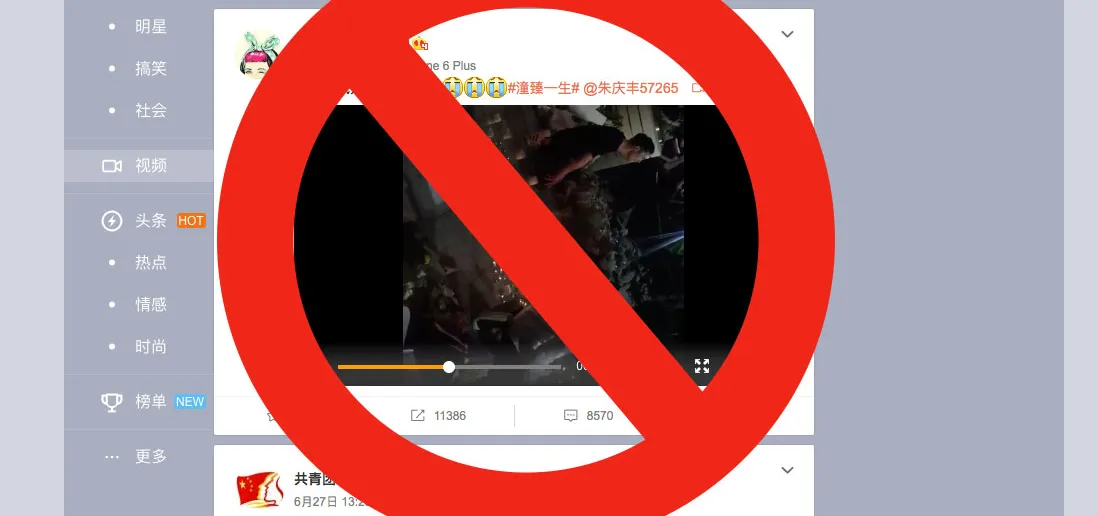Ban on video streaming puts Weibo under strain once more
Weibo is facing tough times again. A new announcement regarding video streaming on the social-networking site (as well as news portal iFeng and streaming site AcFun) has put video-streaming center-stage in the latest censorship tussle. The platforms targeted are accused of allowing “many politically-related programs that do not conform with state rules and social commentary programs that propagate negative remarks and opinions,” the State Administration of Press, Publication, Radio, Film and Television said.
As you might have guessed, the new rules aren’t great for Weibo’s prospects.
The site has seen its number of users decline ever since 2013 when a widespread crackdown on celebrity “Big V” accounts forced a change in the nature of the site. The freewheeling discussions on political and social affairs subsided were replaced with more lifestyle and celebrity-focused material, and, of course, the cute clips of dogs and cats at which the internet excels.
The thing is, WeChat can do a lot of that stuff better. Whether you chalk Weibo’s current problems up to the competition from WeChat or censorship, the problem still remains. With recent crackdowns on even celebrity-focused news, Weibo’s niche is getting tighter and any social or political discussions are being further marginalized.
Earlier this year, the figures seemed to indicate that Weibo was rallying—due, mostly, to video material.
Which is what has effectively just been banned. The language used in the June 22 ban is pretty clearly a shot across the bow of social media platforms that might use video to spread news about politics in particular.
There are caveats; this might not sound the death knell for Weibo for a number of reasons. There are still videos up on Weibo, which indicates questions over how (and who) will be enforced. There’s also the fact that technically, Weibo itself doesn’t host the original videos, which are provided through third-party apps and companies like Miaopai, Pear Video and Yizhibo.
Miaopai and Pear Video handle short clips while Yizhibo handles the live streaming, the key format being targeted in the current crackdown. It would also seem that Weibo’s recent improved user performance was more related to the short clips than live streaming, so there’s potentially a ray of sunlight for Weibo.
It’s also possible that Weibo will find a way to navigate the multitude of bans which have accumulated over several years, but presumably it will be on the basis that material is screened before being broadcast. Live-streaming, as a concept, tends to make the authorities uncomfortable because it’s not easily vetted before being disseminated.
As for the future of Weibo, only time will tell, but this latest news most definitely isn’t good for the company. Within hours of the ban being announced, one billion USD was effectively wiped off the company’s market cap.
And on Monday, Bilibili, a website focused on video clips of comics and games also came under the spotlight as it announced it would be imposing real-name registration requirements for anyone posting videos as of July 5, in order to adhere to regulations.












